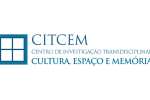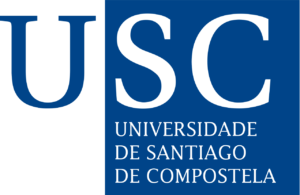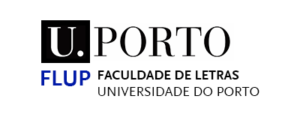16/05 – RTP Auditorium, Avenida Marechal Gomes da Costa, n.º 37
17/05 and 18/05 – Universidade Nova de Lisboa, Campus de Campolide – Colégio Almada Negreiros, Gabinete 348, 1099-032

16/05 – RTP Auditorium, Avenida Marechal Gomes da Costa, n.º 37
17/05 and 18/05 – Universidade Nova de Lisboa, Campus de Campolide – Colégio Almada Negreiros, Gabinete 348, 1099-032
We are delighted to announce the forthcoming RIPE@2024 conference in Lisbon, Portugal. Our 12th biennial conference is produced as a collaborarion between three of Portugal’s most influential schools for media research and education, the Faculty of Social Sciences and Humanities at Nova University, Porto University, and Santiago of Compustela University in partnership with the Opinion Council of RTP, the national public service provider.
RIPE is the acronym for Re-Visionary Interpretations of the Public Enterprise in media.
Digital technologies have caused enormous disruptions and high instability for media systems and companies around the world, ushering in consequential shifts in economic and political power. More media of more types are motivated by commercial imperatives than ever before, while the editorial function has become increasingly precarious and endangered. Online platforms are socially influential and used as primary sources of news and information, although in many cases without clear editorial responsibility over the content and without providing a comprehensive service. Most are social media platforms that define themselves as tech companies rather than media companies to avoid editorial responsibilities. The digital majors are big data corporations with substantial influence on the substance and tenor of public communications.
While national PSM providers remain important in principle and often in policy, as well, they are not strongly supported in practice in many countries and most are struggling to cope with competitive disadvantages that are too often severe. These especially include constraints on and cuts in funding, uncertain and wavering political support, growing pressure from commercial lobbies, the scope and scale of growing global competition, and fragmentation as well as growing polarizaio of publics.
Scholars and practitioners alike are all too familiar with confounding problems for socieities caused by the proliferation of fake news, mis- and disinformation campaigns that have propagandistic intentions, echo chambers and filter bubbles, and emerging concerns related to the use of generative artificial intelligence to produce increasingly sophisticated ‘deep fake’ content. The collapse of editorial responsibility combined with efforts to undermine the public service orientation and organizations mandated to enact it has created systemic conditions that are characterized by nontransparency and unaccountability, predatory media strategies, pseudo-realistic news content, partisan news as business strategy, all of which has fueled a widespread and increasing lack of public trust in news media.
The current situation poses grave dangers to the health and vitality of the public sphere in democratic societies, and greatly complicates efforts to develop a public service orientation in media where the public service ethos has not been historically characteristic. This orientation and ethos are being undermined to an alarming degree in both institutional and operational aspects. The implications are more troubling still in the environmental context of rapid global warming. Trust in truthful reporting and accurate information undermines efforts to address existential threats historic disregard for the health of the planet presents a set of problems that are existential threats in the natural ecology. Young people everywhere are increasingly anxious, dissatisfied, and in too many cases angry or depressed.
PSM can play a role of pivotal importance in redressing imbalances in the news and media ecology, fairly reporting factual realities, and facilitating political and social discourse that is necessary to enact solutions that require significant change in individual and organization behaviors. Achieving this will require further development changes in PSM internal priorities, activities and structures to develop sustainable practices, and effective communications with external stakeholders in political and popular markets to continually secure the support needed to perform this role. PSM can and should be an important part of strategies and practices to enourage greater respect for the fragility of our natural ecosystem and in providing valued services for people as a global community with diverse cultures, political systems, and socio-economic conditions.
As a consequence of global warming, inequities in the global ecomomic system, and problems rooted in violence and conflict both within and between nations, wealthy societies are struggling to cope with mass migration while economically disadvantaged populations in the Global South are struggling to cope with environmental degredation and potentially cataclysmic disruptions in political and economic life. Societies everywhere are struggling to strengthen and maintain cohesion as nationalism and protectionism are on the rise, as renewed imperial ambitions are causing tremendous loss of life, as xenophobic politics and radical populism grow throughout the West, and as sophisticated forms of clandestine propaganda employ cyber-strategies with the strategic intent of underming democracies in both principle and practice and to foment civil unrest.
The socio-economic and political context begs serious efforts to address a range of crucial questions for PSM organizations today: What are the roles and functions of the public service sector in addressing such a broad and complex range of challenges? How can PSM mitigate and even help to resolve the damaging consequences of predatory pseudo-journalism? What can PSM do to shore up political and popular support not merely for organizational self-interests but in pursuit of a genuine contemporary mission to help ensure development and sustainability? What can PSM do to counter and remedy the negative externalities of commercial, state and clandestine media systems that have undermined the social responsibility ethos and editorial independence? How can national PSM organizations effectively compete with international digital media giants that refuse editorial responsibilities to be a counterbalance and potential antidote? How can PSM resist the alarming constellation of pressures that prioritize goals that have nothing to do with serving publics and develop convincing answers to strengthen public and political support? What can PSM due to safeguard independence and restore trust in the media? How can and should PSM organizations, managers and workers support and facilitate achieving sustainability goals that matter for everyone in every society?
The RIPE@2024 conference organizers invite paper abstract proposals that are relevant to this broad range of concerns. Empirical and comparative research is especially appreciated. While other topics and priorities are welcome, the scientific committee is especially interested in proposals to produce papers that that addresses the following:
Abstracts are due 25 February 2024. Submitters will be informed of acceptance by 15 March 2024. Full papers are due 5 May 2024.
Sustainability is an issue of strategic importance for the future of the public service orientation and mission in media provision. This is a complex issue with many aspects and implications. The drive for innovation in concepts, practices, relations, resources, and content / services is highly pertinent for PSM sustainability.
Respected thought leaders and industry leaders will assess the state of PSM today, explain Portugal’s media industry environment, clarify RTP’s strategic and operational priorities, and examine the role of RTP in serving an international diaspora.
The RIPE community of researchers and practitioners is a diverse international group with expertise in every aspect of crucial importance for PSM – strategy and policy, history, technology, organizational concerns, operations, finances, content and services, and uses and audiences.
First option
Other options
Hotel Roma
Zurich Hotel
Hotel Berna vip executive
Hotel 3k Europa
Hotel ibis Lisboa José Malhoa
SANA Malhoa Hotel
Novotel Lisboa
325€
375€
175€









For answers to questions related to logistics or other practical matters not addressed on the website, you can send email to either of these two options:
For information about RIPE or to contact the IAPMR leadership team, please email Gregory Lowe Gregory Ferrell Lowe: gregory.lowe@northwestern.edu
Scientific Committee
Work group of RTP (Opinion Council)
Deolinda Machado (President)
Ana Cristina Martins (secretary)
Carla Cerqueira
Clarisse Santos
Diogo Belford Henriques
Jorge Manuel Ferreira de Ascenção
Augusta Henriques
Maria José Dionísio
Paulo Rocha
Rui Alberto Martins Teixeira
José Lourenço